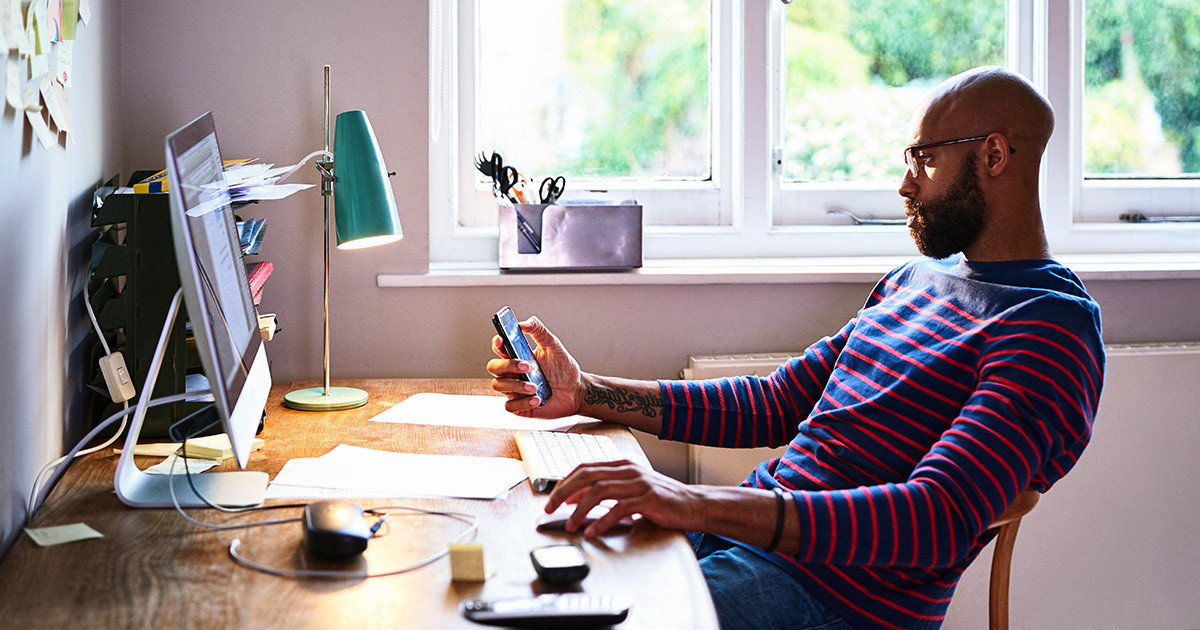If 2020 was all about the coronavirus, it was also all about remote work. It had to be. Companies that in the past were somewhat reluctant to go to this model had little choice in the matter if they wanted to stay afloat.
Some businesses were able to get along without it, like retail and the food service industry. However, any industry that could change their business model to allow remote work to take place did so, and now, their employees have a taste for it.
It seems evident that remote work will continue in some capacity after the pandemic is over, though it’s uncertain just how much we’ll continue to see it a year or two years from now. Let’s take a look at some remote work positives and negatives. You can be sure many companies are thinking about these very topics at the moment.

Remote Work Means No More Building Rental Fees
Let’s start with some remote work positive features. If you have a company that owns a building, they can get all of their employees to come there. However, more frequently, a business will rent a facility. They must continue paying a monthly fee to use it.
That monthly fee:
- Is usually quite expensive, especially for a larger company
- Means there’s less money for other things, like marketing and expansion
If you have remote workers, then as a company, you don’t need to pay for building rental, and you don’t have to purchase a building either unless you create a physical product. If you provide a digital service or product, you can have remote work exclusively, and you can save substantial money every month and quarter.
You can look into intranet features if you have a company that wants to continue doing remote work after the pandemic. When you have a company-wide intranet setup, it makes remote work much easier and more convenient.
You’ll Have Less Employee Turnover
It’s also highly likely that if you allow remote work to continue once the pandemic ends, you won’t have as much employee turnover. That is because:
- People like working from home
- Workers don’t often enjoy the morning commute
If someone has to get up early in the morning to catch a train or bus, they’re probably not going to be ecstatic about it. Even if they have their own vehicle, they won’t like sitting in traffic or navigating through driving snow or pouring rain.

If you let them work from home, they can sleep in a bit, and they don’t even need to get out of their sweat pants to do their job. If you let an employee do these things, they will be much more inclined to stay with you. You won’t have to spend all that time interviewing and hiring new workers.
You Can Provide Employees Better Benefits
If you allow remote work to continue once Covid-19 is gone, you can also give your employees better benefits. That’s because of all the money you’ll save since you don’t need office space anymore.
You can raise their salary, give them more vacation time, or match their 401K contributions. Again, this means you won’t lose as many of them, since they’ll be eager to stay with the company.
You might also use the money for more ambitious marketing campaigns. You can use it for research and development or to expand into new markets.

You May Not Be Able to Keep Your Employees as Engaged
Now, on to the potential negatives. The biggest one, according to most employers, is that they worry about their remote workers staying on-task.
They feel like, if their employees are at home instead of in an office, their minds will wander. They might slack off, and the employers will be paying them to do nothing.
However, there is a potential answer to this. The employers can implement a work portal through which they can monitor what their employees are doing.
Bosses can also assign their employees tasks to do. If they are not completing those assignments within a particular designated period, it’s evident that employee is not doing their job well.
Most employers, if they look at the situation objectively, would agree they have more to gain from a remote work setup than they have to lose. If they need to talk to their whole company in-person, they can rent a facility just for that occasion. That has to be better than renting an office space for years on end.
